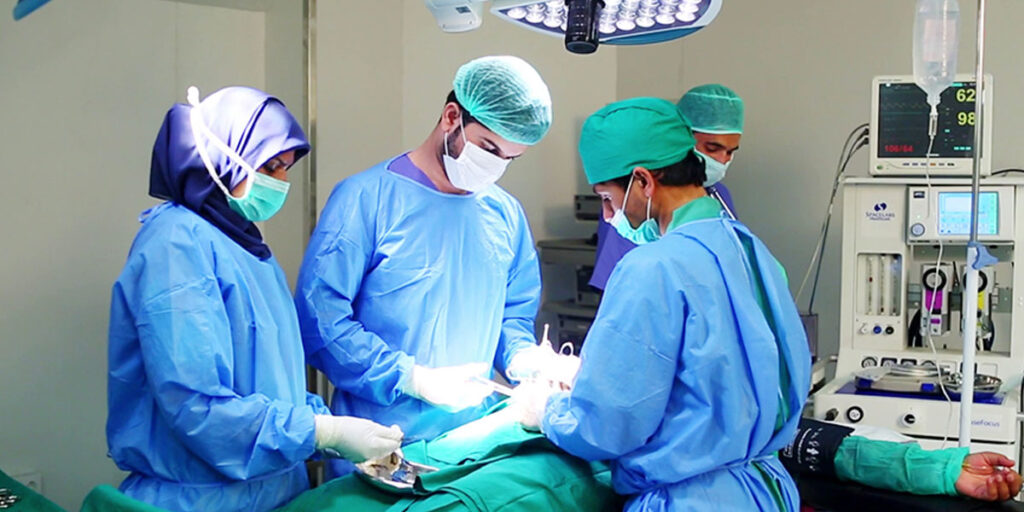Operation Theatre Technician
An Operation Theatre Technician course is a specialized training program that prepares individuals to work as skilled professionals in the operation theatre or surgical environment. Also known as Operation Theatre Technology or Surgical Technology, this course focuses on providing students with the knowledge and skills necessary to assist surgical teams before, during, and after surgical procedures.
During the Operation Theatre Technician course, students learn about the various aspects of surgical procedures, including surgical instruments, sterilization techniques, patient positioning, aseptic techniques, and infection control protocols. They gain a comprehensive understanding of surgical procedures across different specialties, such as general surgery, orthopedics, gynecology, ophthalmology, and more.
The curriculum of an Operation Theatre Technician course typically includes both theoretical and practical training. Students learn about anatomy, physiology, and medical terminology related to surgical procedures. They also acquire knowledge about pre-operative, intra-operative, and post-operative care, including monitoring vital signs, handling surgical instruments, preparing operation theatre equipment, and assisting surgeons and nurses during surgeries.

Practical training is a crucial component of the course. Students gain hands-on experience in operation theatre settings, where they learn to set up and maintain a sterile environment, handle surgical instruments, and assist the surgical team with patient preparation, draping, and positioning. They also learn about anesthesia techniques, surgical emergencies, and post-operative care and wound management.
The Operation Theatre Technician course emphasizes the importance of teamwork, effective communication, and the ability to handle high-pressure situations. Students develop skills in problem-solving, critical thinking, and decision-making, ensuring smooth operation theatre workflows and patient safety.
Upon completion of the course, graduates can work as Operation Theatre Technicians or Surgical Technologists in hospitals, surgical centers, and other healthcare facilities. They play a vital role in ensuring the efficient functioning of operation theatres, providing support to surgeons, nurses, and other healthcare professionals during surgical procedures.
Operation Theatre Technicians can further specialize in specific areas such as neurosurgery, cardiothoracic surgery, plastic surgery, or endoscopy by gaining additional training or certifications. They may also pursue higher education to advance their career prospects, take up managerial roles, or work in education and training positions related to surgical technology.
In summary, an Operation Theatre Technician course provides individuals with the necessary knowledge, technical skills, and hands-on training to work effectively in operation theatres. It offers an exciting career path for those interested in healthcare, surgery, and playing a crucial role in ensuring successful surgical outcomes.
Future Career Options after Operation Theatre Technician
After completing an Operation Theatre Technician course, you can pursue various career options in the healthcare industry. Common career paths include working as an Operation Theatre Technician, Surgical Technologist, Operating Room Assistant, or Surgical Assistant in hospitals, surgical centers, and other healthcare facilities.
Operation Theatre Technicians play a vital role in the operation theatre or surgical environment. They assist the surgical team before, during, and after surgical procedures. Their responsibilities may include preparing the operation theatre, sterilizing instruments, assisting with patient positioning, handing surgical instruments to the surgeon, and ensuring the smooth flow of surgical procedures.
While specialization opportunities may be limited at the technician level, you can gain experience and develop expertise in specific surgical areas through on-the-job training and further education. By working in specialized surgical departments, such as neurosurgery, orthopedics, or cardiovascular surgery, you can gain specialized knowledge and skills in those areas.
Yes, there are opportunities for career growth and advancement as an Operation Theatre Technician. With experience, additional certifications, and further education, you can take up supervisory roles, become a senior technician, or work as an Operation Theatre Coordinator. You may also have the option to move into education and training positions related to surgical technology.
Yes, you can pursue higher education after completing an Operation Theatre Technician course. You may consider Bachelor’s or Master’s programs in Surgical Technology, Health Sciences, or related fields. Higher education can provide you with advanced knowledge, research opportunities, and potential career advancement in leadership or specialized roles.
While the primary focus of an Operation Theatre Technician qualification is on the surgical environment, some skills and knowledge gained can be applicable to other areas of healthcare. You may explore opportunities in sterile supply departments, emergency departments, or outpatient clinics where sterile techniques and surgical assistance are required.
International employment opportunities for Operation Theatre Technicians may vary depending on the specific country’s requirements, certifications, and licensing. It is advisable to research the destination country’s regulations, fulfill any additional requirements, and possibly pursue international certifications to increase your employability abroad.
To stay updated with advancements in surgical technology, it is beneficial to engage in continuing education programs, attend conferences, workshops, and seminars, and join professional organizations or associations related to surgical technology. Following reputable journals, publications, and online resources can also help you stay informed about emerging trends, new techniques, and best practices in the field.
Yes, the field of surgical technology offers opportunities for professional development and specialization. Continuous professional development, acquiring specialized certifications, and gaining experience in diverse surgical settings can lead to better career prospects, specialized roles in specific surgical areas, or opportunities for leadership positions.
Job opportunities can be found through various channels, including online job portals, healthcare institution websites, professional networks, and recruitment agencies. Networking, internships, and volunteering can also help you connect with potential employers and gain relevant experience in the field of surgical technology.
Please note that specific career opportunities may vary based on factors such as location, market demand, and individual preferences. It is advisable to conduct thorough research, explore various career paths, and seek guidance from professionals in the field to make informed decisions regarding your future career after completing an Operation Theatre Technician course.


